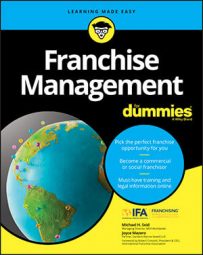The master franchisee recruits new franchisees into the system and often provides them with many services other franchisees get from the franchisor. In exchange for recruiting and supporting the subfranchisees, the master franchisee retains a portion of the initial fee paid by the subfranchisee (the franchise fee) and retains a portion of the continuing royalty payments (the continuing fee paid by the unit franchisee to the franchisor, usually based on a percentage of gross sales).
The arrangement has been common in international franchising but is becoming less so; it’s never been very common in the U.S. Technology allows many franchisors to support international franchisees directly.
Some franchise systems expand primarily via area development or multi-unit development. Theoretically, by dealing with fewer but larger and presumably more sophisticated franchisees, franchisors can manage their systems with more ease and focus their efforts on support, new products, services, and other areas besides franchise sales. Other chains use a multi-unit strategy only in their core or larger markets and sell single franchises only in their smaller markets. The method depends on the system and its growth strategy.For franchisees, an advantage of acquiring an area is that you lock in a territory in which you can develop multiple locations without having to worry about how many other franchises are being developed and how close those locations are to your sites. In contrast, if you buy franchises one at a time, you risk getting closed out of parts of your area because other franchisees or company-owned locations have been developed.
Before striking a deal for area development rights, consider the following:
- The number of stores you ultimately want
- The amount of money you can invest or raise to develop those stores
- The number of locations the market can support
- The additional costs and savings you will incur
- Your ability to manage multiple units
If you default on the development schedule, you may lose your deposit — plus the franchisor may terminate your exclusive rights or all the development rights you were granted to the area.
Find out how strict the franchisor is regarding defaults of development obligations. Some will amend the agreement to accommodate late construction schedules or other problems. They may also extend the opening date. (Sometimes they charge the franchisee an extension fee.) The development schedule may also include grace periods.Many franchisors don’t have a set policy — how they respond depends on whether the franchisee has been trying to get the units open and whether, despite their best efforts, unforeseen obstacles have arisen. The flexibility of the franchisor may depend on whether there is a good franchisee-franchisor relationship. Check with other multi-unit franchisees to find out what the franchisor does in a crunch.
A policy can be changed, and if what you expect to happen isn’t covered in your agreements, the franchisor likely is not required to extend that policy to you when you need it.
Franchisors often offer a lower initial franchise fee and sometimes a lower royalty rate to an area developer than to a franchisee who’s only committing to open one site. There are three main basic reasons they offer reduced fees:- The franchisor reduces costs by having one individual or company own multiple locations. The franchisor saves on having to recruit additional franchisees to open units and on the time, cost, and effort of providing initial support to individual units.
- The franchisor provides a different level of support to the multi-unit operator. With a multi-unit developer, a franchisor works with only one franchisee for all locations. Often that means it can support the locations differently than for a single-unit operator, reducing support costs.
- The franchisor recognizes that the multi-unit developer makes a commitment to the system and takes a sizable financial risk. Both franchisor and multi-unit developer feel that the commitment should be rewarded in some fashion — usually in lower fees.
Make sure the development schedule is reasonable. If it’s not, and if you need to negotiate later with the franchisor for an extension of time, you may find that you have to make certain concessions, such as a reduced territory.

